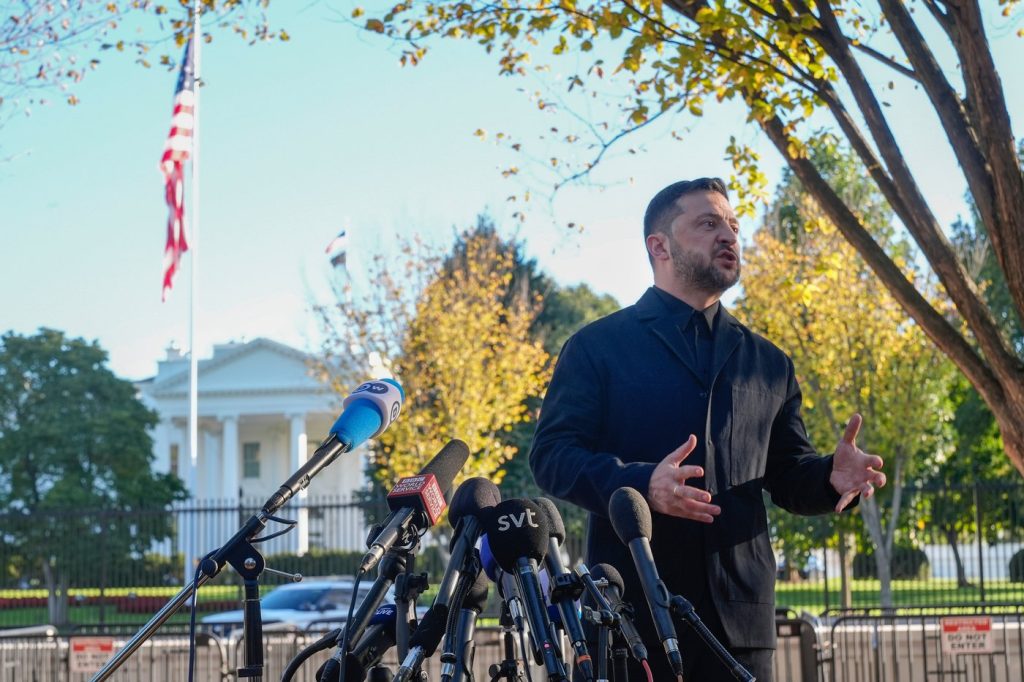On Tuesday, Ukrainian President Volodymyr Zelenskyy and several European leaders openly criticized Russian President Vladimir Putin for allegedly delaying diplomatic attempts to end the ongoing invasion of Ukraine. They firmly opposed any suggestions, including those previously made by U.S. President Donald Trump, that Kyiv should surrender territory captured by Russian forces in exchange for peace.
A joint statement was issued by eight European leaders and senior European Union officials, expressing their commitment to utilize Russia's frozen assets abroad—amounting to billions of dollars (euros)—to support Ukraine in its fight against the invasion. Despite concerns regarding the legality and potential consequences of such actions, the leaders reinforced their stance on not compromising Ukraine's territorial integrity.
The statement supported Trump’s peace initiatives as he approaches a meeting with Putin in Budapest, Hungary, in the coming weeks. However, it also stressed the principle that international borders should not be altered through force. Recently, Trump altered his previously held view that Ukraine would need to concede land to Russia, now suggesting that Ukraine could possibly reclaim all lost territory. After discussions with Putin and a meeting with Zelenskyy, Trump shifted his position again, calling for both sides to “stop where they are” in the long-standing conflict.
Over the weekend, Trump suggested that the industrial Donbas region in eastern Ukraine should be partitioned, leaving a significant portion under Russian control. When asked about Ukraine's chances against Russia, he expressed doubt about their ability to prevail, despite earlier believing in Ukraine’s potential for victory.
Ukrainian and European leaders are keen to maintain Trump’s support in these negotiations. They emphasized in their statement the urgent need for the fighting to cease immediately and for the current contact lines to serve as the basis for future negotiations, noting Putin’s persistent inclination towards violence and destruction.
The situation is further complicated by the fact that Russia occupies about one-fifth of Ukraine. Ukrainian officials argue that any arrangement resulting in the division of their country in pursuit of peace would be unacceptable. They fear that a frozen conflict could lead to continued tensions and serve as a catalyst for potential future aggression from Moscow.
This coordinated statement from the leaders of Ukraine, the U.K., Finland, France, Germany, Italy, Norway, Poland, Denmark, and EU officials comes at a time described by Zelenskyy as a week of heightened diplomatic engagement. Anticipated discussions at an EU summit in Brussels on Thursday are likely to focus on increasing international economic sanctions against Russia.
The statement reiterated the necessity of amplifying pressure on Russia's economy and defense industry until Putin agrees to negotiate peace. Furthermore, a meeting of the Coalition of the Willing—a group consisting of 35 countries that support Ukraine—is scheduled for Friday in London, underscoring the international resolve to aid Ukraine in its struggle.











